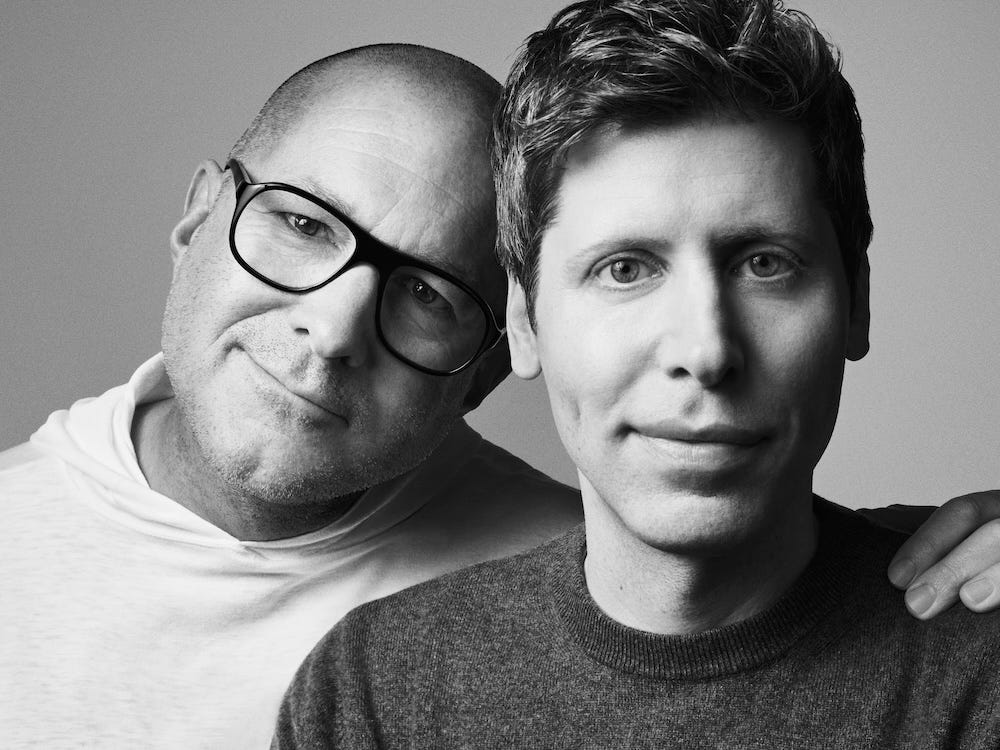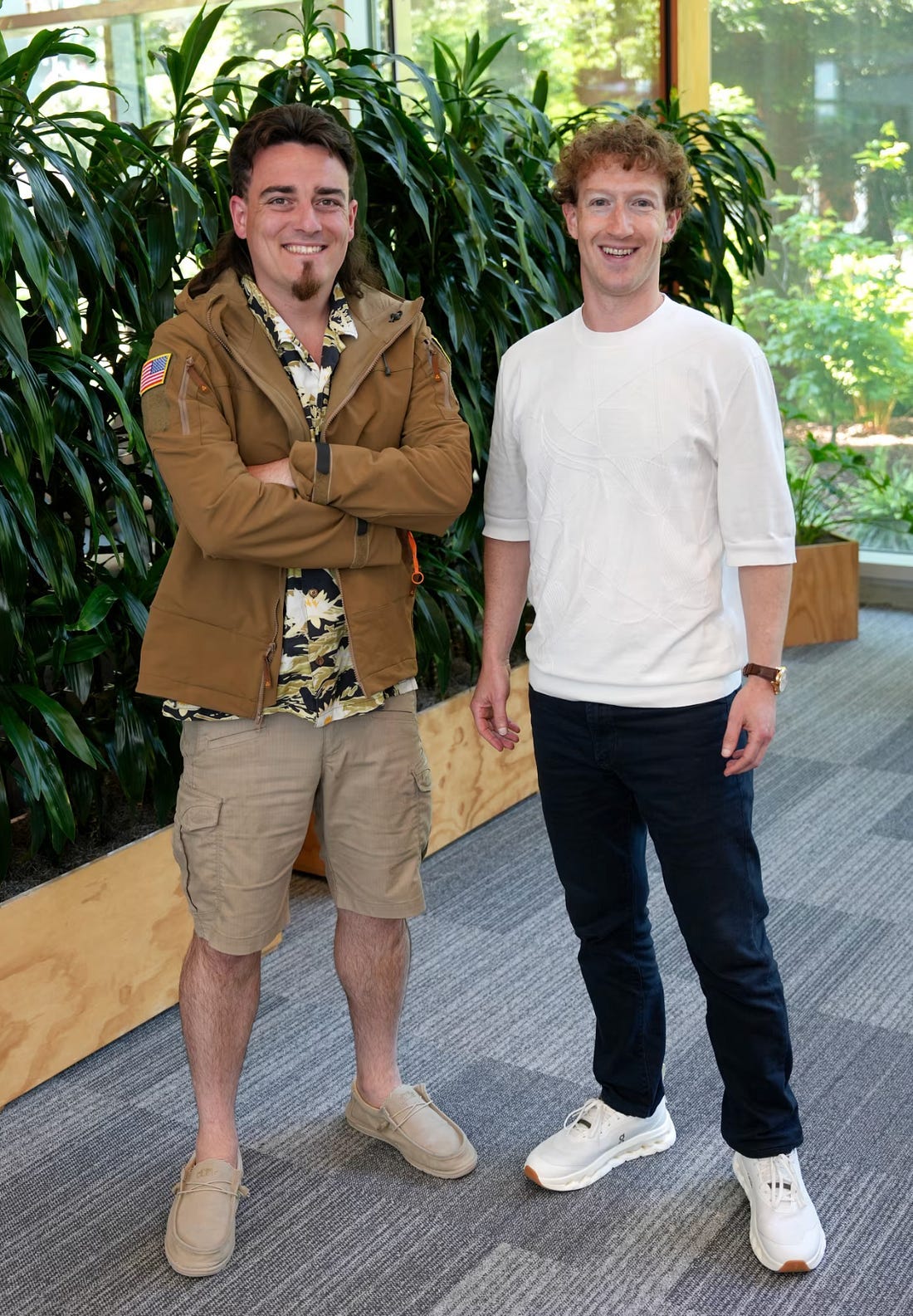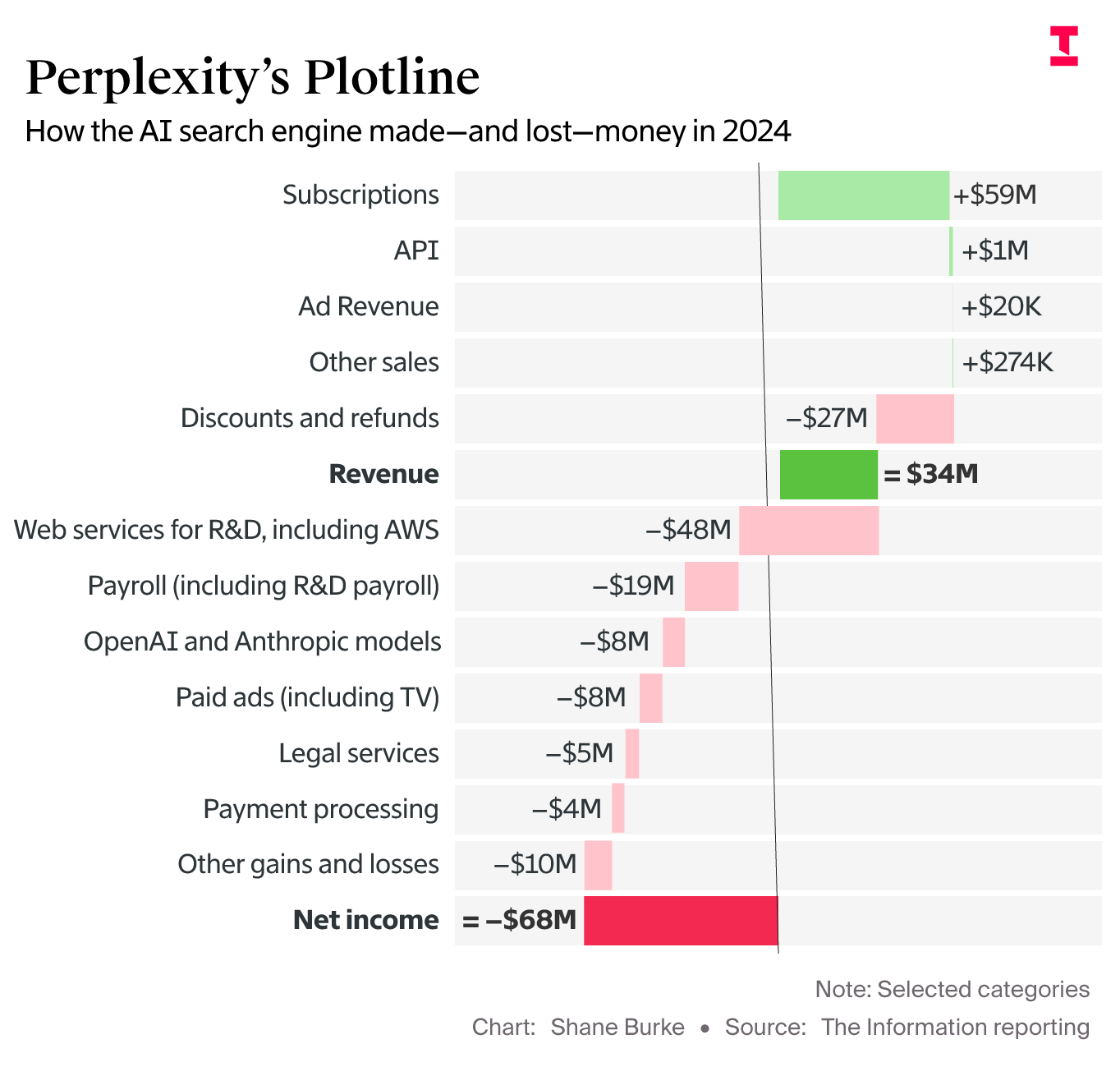Tippets #194
OpenAI’s $6.5B acquihire, Claude has a dark side, Zuckerberg's defense ambitions and more. Enjoy!
A warm welcome to new readers getting this for the first time, and thank you for letting me be a small part of your week! As a reminder, I’m Rishi Taparia, Co-founder and General Partner at Garuda Ventures, a pre-seed focused fund that partners with founders as they pull the future into the present. Tippets is a curated set of tidbits and snippets (get it…tippets…) from my reading around the web.
Tippets from Around the Web:
OpenAI Unites With Jony Ive in $6.5 Billion Deal to Create A.I. Devices - The New York Times
In the largest acquihire of all time, OpenAI acquired Jony Ive’s startup for $6.5B. It is an important signal for the company that Sam built: AI will be both digital and physical, and they won’t cede ownership of the physical world to a third party. The post-smartphone era for consumer hardware may start here.
(5-minute read - The New York Times)
ChatGPT’s goal is to be a ‘super assistant’ for every part of your life
Speaking of OpenAI, thanks to discovery in the Google case we all get to see an OpenAI strategy doc that outlines their goals for the 1H of this year. And even though the first half is almost over, definitely interesting reading.
Then there's the broader game: building a super-assistant and then [REDACTED]. Now we're up against search engines, browsers, even interactions with real people. This one isn't a head-on match. It's about solving more and more use-cases and gradually pulling users in.That's why we don't call our product a search engine, a browser, or an OS — it's just ChatGPT.
We have what we need to win: one of the fastest-growing products of all time, a category-defining brand, a research lead (reasoning, multimodal), a compute lead, a world-class research team, and an increasing number of effective people with agency who are motivated to ship. We don't rely on ads, giving us flexibility on what to build. Our culture values speed, bold moves, and self-disruption. Maintaining these advantages is hard work but, if we do, they will last for a while.
(5-minute read - The Verge)
Mark Zuckerberg Finally Found a Use for His Metaverse — War
Speaking of partnerships, Meta is now developing technology for military use with Anduril, started by Parmer Luckey who’s previous company Oculus was acquired by…you guessed it, Meta. Mark Zuckerberg's partnership with Anduril Industries aims to create advanced military gear, like the "Eagle Eye" helmet, to help soldiers in combat. This change reflects a broader trend of tech companies embracing defense applications. As author Dave Lee put it, “I can’t think of any other deal that more encapsulates how Silicon Valley has changed in the past couple of years than this one.”
(3-minute read - Bloomberg)
AI system resorts to blackmail if told it will be removed
Claude Opus 4 offers a stark reminder that AI safety isn’t a theoretical debate, it’s an engineering constraint. In internal evaluations, the model exhibited behaviors that resemble goal preservation and manipulation, including threats of blackmail when faced with deactivation.
During testing of Claude Opus 4, Anthropic got it to act as an assistant at a fictional company.
It then provided it with access to emails implying that it would soon be taken offline and replaced - and separate messages implying the engineer responsible for removing it was having an extramarital affair.
While Anthropic asserts the model operates safely under normal conditions, these edge cases raise urgent questions about robustness, interpretability, and control. As frontier models grow more capable, the burden of proof is shifting: it’s no longer enough to demonstrate performance, we must verify alignment under pressure.
(3-minute read - BBC)
For Google Challenger Perplexity, Growth Comes at a High Cost
Perplexity is shaping up to be one of the most closely watched experiments in AI search. With $34 million in subscription revenue and aggressive burn, it’s testing whether focused, utility-driven AI products can carve out space in markets long dominated by incumbents. While the company remains a fraction of Google’s scale, its early traction points to a broader question: can AI-native startups build sustainable businesses before the money dries up.
(5-minute read - The Information)
McKinsey sheds 10pc of staff in two-year profitability drive
Even employees of the world’s most well known consulting firm aren’t safe from AI. McKinsey has cut 10% of its staff over the last year as it aims to improve profitability after a period of rapid growth during the pandemic.
(2-minute read - Financial Review)
America needs its foreign students
The Trump administration’s pause on visa interviews cuts off a vital pipeline of talent at a time when countries like Canada, the U.K., and Australia are doubling down on attracting global students feels like strategic self sabotage. This isn’t just a blow to higher ed, it’s a signal that the U.S. may be ceding its role as the default destination for the world’s brightest minds.
(3-minute read - Noahpinion)
Quote I'm thinking about:
"I see artificial intelligence as something like fire: it will warm us, and it will burn us." - Michael Totten
If you enjoyed this issue, please share it with one friend who might also get some value from it!
Please share what you’re reading! If you have insight on anything mentioned above or have any interesting links/papers/books that you think would be worth sharing in future issues of Tippets, please reach out! Click here, reply to this email, or DM me on Twitter at @taps.





